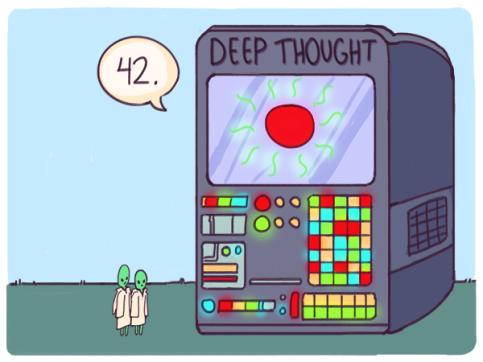
A nine-foot bronze Baphomet was dedicated in Detroit this summer by the local chapter of The Satanic Temple. In the absence of prominently displayed trigger warnings, the event produced its requisite amount of religious outrage but, as with the freewheeling collectivity Anonymous, the outrage generation is a feature, not a bug.
And it’s much more in keeping with the spirit of the Morningstar who, from Milton and Goethe through to Mike Carey’s comic series Lucifer, is more than willing to allow the foolish and arrogant fall into their own pits.
 I recently re-read that latter for the umpteenth time, and it gets better with each re-read. But for all of the Nietzschean overtones of an entity of pure will, leaving hell and (small spoiler alert) creation is as much as reaction of spite as an act free-chosen. In fact, it’s this reactionary foundation that can never quite be abjured that prevents Lucifer from realizing his uncompromised desire.
I recently re-read that latter for the umpteenth time, and it gets better with each re-read. But for all of the Nietzschean overtones of an entity of pure will, leaving hell and (small spoiler alert) creation is as much as reaction of spite as an act free-chosen. In fact, it’s this reactionary foundation that can never quite be abjured that prevents Lucifer from realizing his uncompromised desire.
It’s another character, rather—Elaine Belloc—who reaches outside creation, only to reach back inside. Where Lucifer refuses to bind his fate to a world, Elaine sees the power she wields, even with the constraints imposed by second-order consequences of intervention, and sees that she must yield her freedom to a creation unwilling or incapable of truly grasping her efficacy or sacrifice.
Nietzsche had begun to grasp this tension; in The Dionysian Vision of the World, he writes:
Apollonian seeming is governed by the principles of non-contradiction and individuation, whereas Dionysian ecstasy is, as we will see, precisely the falling away of these principles.
If Nietzsche ultimately grasped the contradiction of freedom and commitment (as I believe he did), it was occult, as nearly all who read his writings took from it rather an philosophy of the noble sacrifice and rebirth of elites.
Venkatesh Rao, in the closing chapter of his series about the power dynamics of The Office (featuring the triad Sociopaths [not the clinical term], the Clueless, and Losers defined in Part I of The Gervais Principle), recognized the split that divorced Lucifer and Elaine in Carey’s series.
Of those who weather reality shock, most simply accept their life and their permanent estrangement from non-Sociopaths. They have ascended to freedoms they cannot explain to those who do not possess them. They are somewhere between contemptuous and mildly indulgent towards those who inhabit the realities they create. Indifference is the default middle-ground attitude.
[…]
But freedom can also be a scary condition. It offers no canned reasons to do one thing instead of another, or even do anything at all. It offers no fixed motivations. There is nobody to blame for failures, no meaningful external validation for success. If physics allows it, you can do it. The consequences mean whatever you decide they mean.
So for some, freedom becomes a burden rather than a source of power. […] The dissolution of social realities leaves behind only the cryptic material universe that must be painstakingly decoded through that supremely nihilistic behavior, scientific inquiry. But without a social order within which to value and make sense of decoded realities, such inquiry comes to seem like a worthless endeavor.
[…]
What is known cannot now be un-known. There is no way to reverse the effects of the red pill of Sociopathy.
So instead, such Sociopaths turn into compassionate Messiahs, protecting the innocence of the Clueless, restoring the faith of Losers, using their Sociopath powers to guard the exits of paradise lest some unwittingly walk out. Unlike Sociopaths at peace with their freedom, who generally welcome enlightened new company, Messiahs send them home to paradise when they can.
However, he treats it as an a choice of either/or, and not both/and. The split is truly a split along the fault line between the individual and the social. Since the Enlightenment we’ve developed various scripts collectively to become more resilient against these highly entropic individuals who, sensing the safer conditions, have responded by becoming more prominent and self-assured.
But giving oneself to the task of Prometheus; this requires squaring the circle of presenting the acidic fire of the gods to an alkaline social order. Be a virtue ethicist if you like, but don’t show your work! The lazy pluralism that uncritically accepts all worldviews as equally valuable is a coping mechanism for disavowing a responsibility presented of owning one’s own worldview and values; and this without ground or guarantor!
In fact, it is this lack of a guarantor that is the structural difference between an atheism and what Rao calls an encounter with the ‘absent god’, or what Levi Bryant calls atheology:
The real issue is not whether one should side with believers that assert the reality of the divine and supernatural, and the secular who assert only the reality of the material world or the naturalistic; rather, the debate is between logics of transcendence/sovereignty/patriarchy/state versus logics of immanence/anarchy.
Some atheists groups have made much hay about the Pew research showing a strong increase of the ‘nones‘, but category covers a lot of ground, and the ‘atheological’ cuts sideways, with many nominal atheists resolutely gripping to their preferred replacement guarantor of meaning (science, politics, etc.), and the occasional mystic tentatively continuing along an absurd journey. This “sideways” cut is what drives a lot of the work from Peter Rollins, who was involved in the Ikon community in Belfast, and sees what needs to be done more as the staging of an intervention than presenting a coherent, packaged worldview for people to return or convert to. He’s dubbed his more psychoanalytic approach ‘pyrotheology’, writing:
It is all too common for people to think that the problem with unbelief is that it stands in opposition to belief, that it is that which prevents us from believing. However the problem with unbelief lies precisely in the dialectically opposing position: namely, it supports and sustains belief. In short it enables us to continue in our belief.
[…]
Unbelief allows the communities to get the psychological pleasure from the beliefs that they hold (treating them as a security blanket) without having to confront the horror of them.
This is why the people who leave fundamentalist communities are often not the ones who don’t take it seriously enough, but those who do (and who are thus confronted with the true horror of the communities beliefs).
Can a social order be constructed that can retain hold of these hard-won, meta-social/meta-cognitive insights? To all appearances this is a contradiction in terms, and any aspiring ‘sociopath messiahs’ should look at their chances of success with as piercing a gaze as they once had.
Sarah Perry identifies the tension in her book Every Cradle is a Grave:
Experience Machines vary along the dimensions of being effective (producing desirable, meaningful experiences and preventing or at least domesticating negative experiences), honest (not hiding the fact that they are cultural artifacts designed to produce experiences), and voluntary (rather than forced upon adherents). These traits are not necessarily independent; I suspect the most effective Experience Machines that have evolved in human societies are probably some of the least honest and least voluntary, and I’d expect honesty and voluntariness to generally correlate negatively with effectiveness.
All of this doesn’t mean it hasn’t been attempted. The Satanic Temple is a fairly straightforward political project, and LaVey’s Satanism is closer to Ayn Rand’s objectivism than the sort of rewoven social we describe. More promising, however, have been parodic religions. Alan Moore is far from shy describing his worship of the snake god Glycon as sincere, while being fully aware that this Roman mystery cult was centered around what was, effectively, a sock puppet.
Scott Alexander has been taking the naming of gods seriously, and his post on Moloch is an excellent starting point toward what could be a sort of folk taxonomy for complex physical and social systems.


And of course, there are the classics: chaos magicians praying to Batman or utilizing the Expecto Patronum; Discordian koans and popes; pirate-talking Pastafarians. The jokes may be a necessity, allowing us to cynically disbelief our belief, but retain our functional belief (hrm, sounds like ideology). The practitioner of chaos magick will argue that prayer works the same as the devout Presbyterian, but will give a functional explanation that’s closer to mind-hacking, just as Adam Gurri has argued that the social connectedness of regular involvement with a church, synagogue or mosque ‘counts’ toward one’s well-being whether or not one commits to the dogma.
However, history takes a sharp view of this sort of self-aware approach, and communities have defense mechanisms against freeloaders who would poach from their communities (whether literal costs such as selling one’s home and donating the proceeds, or simply the social cost of professing beliefs deemed abhorrent or irrational by society). The costliness of commitment serves as a kind of un-fakeable evidence of commitment, and allowed cults like the early Christians survive when numerous mystery cults didn’t. Sarah Perry, again:
Those who are susceptible to sacredness are valuable as sincere cooperation partners since they are unlikely to defect. Signaling that one is susceptible to sacredness is therefore valuable, and actually being susceptible to sacredness might be the best way to do this. Experiencing sacredness together—mutually acknowledging invisible but tacitly understood objects—enables human coordination at a high level of complexity.
All of which seems far afield from the typical Sweet Talk territory, except it isn’t; the early Greek philosophers, these lovers of wisdom, were unabashedly cult leaders, teaching their peculiar brand of wisdom to their acolytes. The process of training required a kind of submission to the ‘rule of the order’, an initiation into a particular community of rhetoric. The best of these equipped their disciples with the faculties with which to turn around and criticize their teachers, but many fell into the easy trap of accepting the provisional metaphysics as actual.
An infernal choice, if there was one: freedom and struggle; slavery and ease?







 I recently re-read that latter for the umpteenth time, and it gets better with each re-read. But for all of the Nietzschean overtones of an entity of pure will, leaving hell and (small spoiler alert) creation is as much as reaction of spite as an act free-chosen. In fact, it’s this reactionary foundation that can never quite be abjured that prevents Lucifer from realizing his uncompromised desire.
I recently re-read that latter for the umpteenth time, and it gets better with each re-read. But for all of the Nietzschean overtones of an entity of pure will, leaving hell and (small spoiler alert) creation is as much as reaction of spite as an act free-chosen. In fact, it’s this reactionary foundation that can never quite be abjured that prevents Lucifer from realizing his uncompromised desire.

